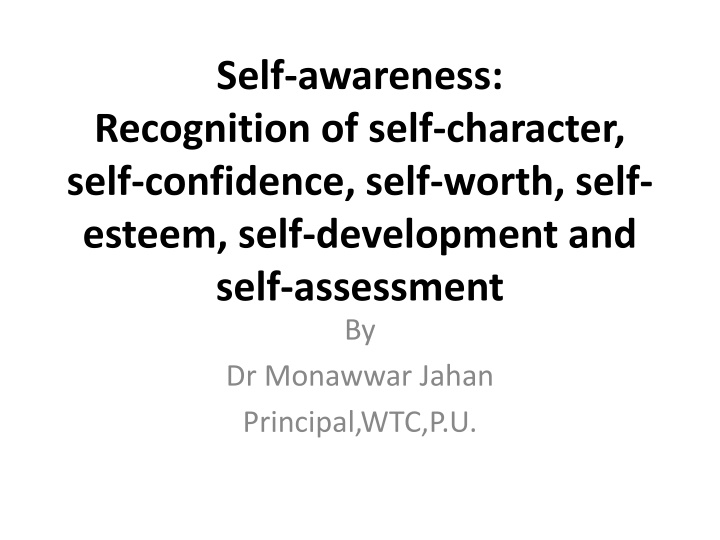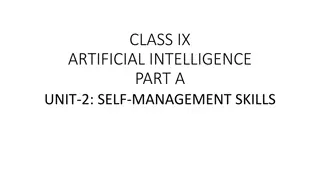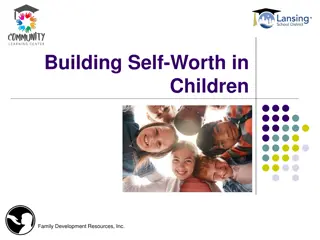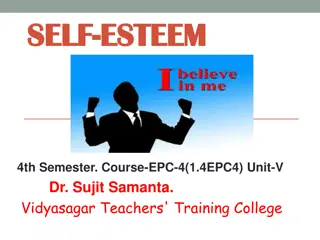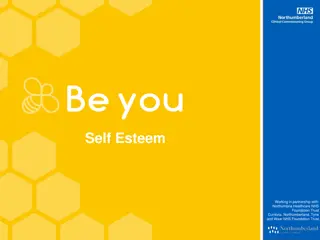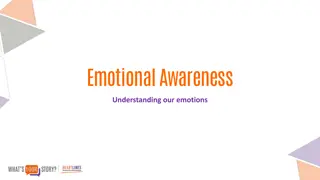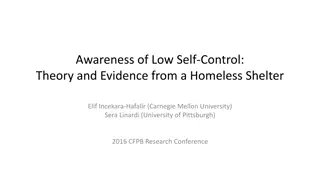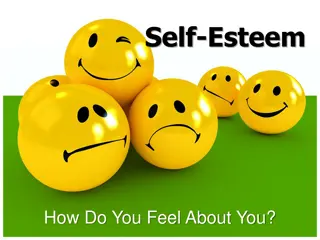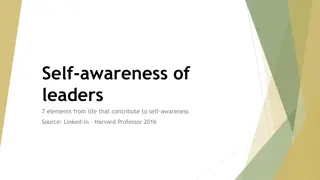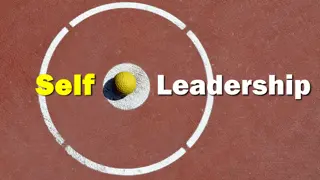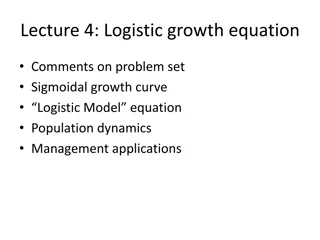The Importance of Self-Awareness in Personal Growth
Self-awareness is crucial for understanding one's character, feelings, and motivations. It helps in recognizing strengths and weaknesses, managing stress, improving communication, and fostering empathy. Developing self-awareness involves introspection, mindfulness, self-reflection, and seeking feedback from others. Embracing self-awareness enables individuals to accept themselves, plan for the future, and engage authentically with others, leading to personal growth and self-improvement.
Download Presentation

Please find below an Image/Link to download the presentation.
The content on the website is provided AS IS for your information and personal use only. It may not be sold, licensed, or shared on other websites without obtaining consent from the author.If you encounter any issues during the download, it is possible that the publisher has removed the file from their server.
You are allowed to download the files provided on this website for personal or commercial use, subject to the condition that they are used lawfully. All files are the property of their respective owners.
The content on the website is provided AS IS for your information and personal use only. It may not be sold, licensed, or shared on other websites without obtaining consent from the author.
E N D
Presentation Transcript
Self-awareness: Recognition of self-character, self-confidence, self-worth, self- esteem, self-development and self-assessment By Dr Monawwar Jahan Principal,WTC,P.U.
Self-awareness The ability to know your potential, limitations, feelings as well as your position in society. Self awareness is the basis of all life skills. It helps in the appreciation of and application of all other life skills. Self-awareness includes Recognition of our personality, Our strengths and weaknesses, Our likes and dislikes.
Self-awareness Self-awareness is the capacity for introspection and the ability to recognize one-self as an individual separate from the environment and other individuals Self-awareness is how an individual consciously knows and understands their own character, feelings, motives, and desire.
Self-awareness Developing self-awareness can help us to recognize when we are stressed or under pressure. It is also often a prerequisite for effective communication and interpersonal relations, as well as for developing empathy for others. This is important in helping one to discover and accept self, plan for the future and even accept others.
Self-awareness The better you understand yourself, the better you are able to accept or change who you are. Being in the dark about yourself means that you will continue to get caught up in your own internal struggles and allow outside forces to mould and shape you. How we see ourselves may be clouded by the feedback messages we received about ourselves from others. But how could anyone know more about you than you? They do not feel your emotions or think your thoughts; they do not face the issues that you wrestled with.
How do we build self-awareness? 1. Walking, especially in the quiet of nature, can be useful in building self-awareness. 2. Practicing mindfulness can increase self-awareness. 3. Becoming a good listener can increase self- awareness. 4. Becoming more self-aware can be quite enlightening. 5. Self-awareness can open your mind to new perspectives. 6. Self-awareness is connected to self-esteem.
How do we build self-awareness? 7. Self-awareness can help you look at yourself objectively. 8. Journaling is a good way to become more self- aware. 9. Feedback from others can help you be more self- aware. 10. Self-awareness can help you know your strengths and weaknesses. 11. Self-awareness can help you set intentions.
Recognition of self-character Self recognition, on the other hand, is a function that applies self awareness and discretion to distinguish between self and other. In medical terms, it allows your body to recognize infection, for example. In interpersonal terms, it allows you to recognize what you are responsible for and what you are not responsible for.
Recognition of self-character The process by which the immune system of an organism distinguishes between the body's own chemicals, cells, and tissues and those of foreign organisms or agents compare self-tolerance. Self-awareness involves being aware of different aspects of the self including traits, behaviors, and feelings. Essentially, it is a psychological state in which one-self becomes the focus of attention. To understand how we recognize ourselves in the mirror.
Recognition of self-character Self-recognition is knowing about your own self - Your strengths and improvement areas, your likes and dislikes, etc. Till you do not recognize your true identity you cannot explore yourself or rather get into self-awareness. Self-recognition gives the state of self- realization the sense of exquisite intimacy
Self-Confidence Believing in oneself Self-confidence is an attitude about your skills and abilities. It means you accept and trust yourself and have a sense of control in your life. You know your strengths and weakness well, and have a positive view of yourself. You set realistic expectations and goals, communicate assertively, and can handle criticism. Self-confidence as an individual s trust in his or her own abilities, capacities, and judgments, or belief that he or she can successfully face day to day challenges and demands.
Self-Confidence Self-confidence is one's ability to judge his own social and personal standing with respect to his environment and be able to derive satisfaction out of it. Self-confidence is influenced by factors like upbringing, work environment, and levels of dedication towards pursuing a cause.
Self-Confidence Self-confidence as an individual s expectations of performance and self-evaluations of abilities and prior performance (Lenney, 1977). Many psychologists tend to refer to self-efficacy when considering an individual s beliefs about their abilities concerning a specific task or set of tasks, while self-confidence is more often referred to as a broader and more stable trait concerning an individual s perceptions of overall capability.
How to develop self-confidence? Building self-confidence requires you to cultivate a positive attitude about yourself and your social interactions, while also learning to deal with any negative emotions that arise and practicing greater self-care. You should learn to set goals and take risks, as well, since meeting challenges can further improve your self-confidence.
Tips to develop self-confidence Cultivate a good attitude Identify your negative thoughts, turn your negative thoughts to positive thoughts. Maintain a positive support network. Identify your talents. Take pride in yourself. Accept compliments gracefully. Look in the mirror and smile.
Tips to develop self-confidence Be comfortable with fear. Be patient with yourself. Strive for balance. Stop comparing yourself to others. Practice gratitude. Take care of yourself. Develop dressing sense. Put care into your appearance.
Tips to develop self-confidence Take time to rest when your body is feeling worn down. Make getting enough sleep a priority so your body is running at its best. Avoid unhealthy habits Eat healthy and balanced diet. Exercise regularly Develop study habit Connect with friends time to time.
Tips to develop self-confidence Take time to check in with yourself every day. Incorporate more joy into your life to increase your sense of well-being Set boundaries for your time and space so you can take care of yourself.. Learn to say no so you don t over commit your time. Reduce the amount of stress in your life so you can enjoy things more. Challenge yourself to learn something new to keep your brain happy.
Tips to develop self-confidence Visualize yourself as you want to be. Affirm yourself. Do one thing that scares you every day. Question your inner critic. Take the 100 days of rejection challenge. Set yourself up to win. Help someone else. Care for yourself.
Self-worth Self-worth is an internal state of being that comes from self-understanding, self-love, and self- acceptance. It's a state that is somewhat timeless and unchanging because it's a direct measure of how you value and regard yourself in spite of what others may say or do. Self worth is the opinion you have about yourself and the value you place on yourself. An example of self worth is your belief that you are a good person who deserves good things.
Self-worth Self-worth is what enables us to believe that we are capable of doing our best with our talents, of contributing well in society, and that we deserve to lead a fulfilling life. Building it up again is therefore natural, essential, and healthy.
Self-worth The sense of one's own value or worth as a person. However, there are many ways for a person to value themselves. One's worth as a person, as perceived by oneself. Recognizing one's self-worth is a necessary step to respecting the worth of others.
How to build self-worth? Understand the power of your attitude toward yourself. Learn to overcome a fear of self-love Analyze yourself. Stop making your self-worth conditional on other people. Tell yourself that you matter. Prove to yourself that you matter. Build your self-confidence.
Self-esteem Believe in yourself. Believing in yourself and accepting yourself for who you are is an important factor in success, relationships, and happiness and that self-esteem plays an important role in living a flourishing life It provides us with belief in our abilities and the motivation to carry them out, ultimately reaching fulfillment as we navigate life with a positive outlook.
Self-esteem The term self-esteem is used to describe a person's overall sense of self-worth or personal value. In other words, how much you appreciate and like yourself. Self-esteem is often seen as a personality trait, which means that it tends to be stable and enduring.
Self-esteem This is the pride opinion and values one puts on him/her self. It is influenced by physical appearance, performance of various tasks, parents, religion, leaders, peers and siblings. Improving your self-esteem increases your confidence and is a first step towards finding happiness and a better life.
Self-esteem According to self-esteem expert Morris Rosenberg, self-esteem is quite simply one s attitude toward oneself (1965). He described it as a favorable or unfavorable attitude toward the self .
Self-esteem Value Worth, Confidence Respect Honour Hold one in high regard
Factors to influence self-esteem Genetics Personality Life experiences Age Health Thoughts Social circumstances The reactions of others Comparing the self to others
Characteristics of high self-esteem Cheerfulness Positive self-image Self-care Self -confidence Self -trust Self-discipline Good performance of tasks Relating well with others Outgoing and assertive
Characteristics of Low self-esteem Isolation and withdrawal Self doubt Self neglect Under performance Vulnerability to peer pressure Aggressiveness Dependency Lack of assertiveness Negative self image Defensive behavior Passiveness Violent behaviour
Self-Esteem vs. Self-Worth Self-esteem is a similar concept to self-worth but with a small (although important) difference: Self-esteem is what we think, feel, and believe about ourselves, while self-worth is the more global recognition that we are valuable human beings worthy of love (Hibbert, 2013).
Self-Esteem vs. Self-Confidence Self-esteem is not self confidence Self-confidence is about your trust in yourself and your ability to deal with challenges, solve problems, and engage successfully with the world (Burton, 2015). Self-confidence is based more on external measures of success and value than the internal measures that contribute to self-esteem. One can have high self-confidence, particularly in a certain area or field, but still lack a healthy sense of overall value or self-esteem.
How to develop Self-esteem? Identifying ,learn and evaluate your self- esteem Listen to your inner voice. Investigate the source of your lowered self- esteem. Set a goal to improve your self-esteem. Participate in charitable work.
How to develop Self-esteem? Master a new skill. List your accomplishments. Do something creative. Get clear on your values. Challenge your limiting beliefs. Stand at edge of your comfort zone. Heal your past. Stop worrying about what others think. Read something inspirational. Welcome failure as part of growth.
Self Development Self development is taking steps to better yourself, such as by learning new skills or overcoming bad habits. An example of self development is taking courses at the university to learn new skills and interesting things. The individual s eagerness and willingness to learn new things always proved boon in the self development criteria.
Self Improvement Skills to Learn that Have Lifelong Benefits Time Management. Empathy. Mastering Sleep Patterns. Positive Self-Talk. Consistency. Asking for help. Knowing when to stay quiet. Listening.
Self Improvement Skills to Learn that Have Lifelong Benefits Read about what you want to improve. Find a mentor. Reflect at the end of each day. Create a strong practice regimen. Find others to push you and train with. Create a reward/punishment system. Stay honest with yourself.
Self Development Skills to Build Strong Personality Get inspired each day: Build on your strengths: Conquer your fear: Come above your comfort zone: Have a to-do-list handy It s time to act: Focusing on good habits: Dealing with tough: Try to learn new ways: Meditation: Cultivate a new hobby:
Self-assessment A self assessment is an individual review performed to identify elements that can be improved or exploited to achieve certain predefined goals. The act or process of analyzing and evaluating oneself or one's actions : Assessment of oneself. Assessment or evaluation of oneself or one's actions, attitudes, or performance The act or process of judging your own achievements or progress When you judge your own work or progress
Self-assessment Self-assessment is a process of formative assessment during which students reflect on and evaluate the quality of their work and their learning, Judge the degree to which they reflect explicitly stated goals or criteria, identify strengths and weaknesses in their work, and revise accordingly. Self-assessment is a valuable learning tool as well as part of an assessment process.
The purpose The purpose of self-assessment is to help the individual know the extent of his abilities and to improve upon them without the need of a performance appraiser. It involves the use of questions such as; what are my strengths; what are the obstacles, etc.
Tips for Self-Assessment Identify their own skill gaps, where their knowledge is weak See where to focus their attention in learning Set realistic goals Revise their work Track their own progress If online, decide when to move to the next level of the course This process helps teachers to stay involved and motivated and encourages self-reflection and responsibility for their learning.
Here's the checklist you can use to self-evaluate: Classroom Organization. Professional Behavior/Appearance. I'm alert for ways to improve my teaching. Classroom Control. Discipline/Character Training. Communication. Lesson Content. Student Engagement. Attitude.
Journaling generally involves the practice of keeping a diary or journal that explores thoughts and feelings surrounding the events of your life. The method you choose can depend on your needs at the time, and your personality; just do what feels right
